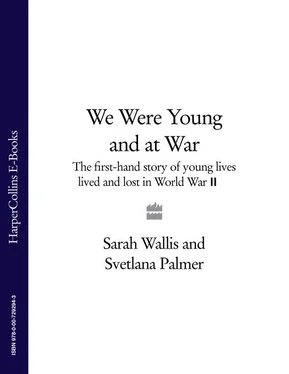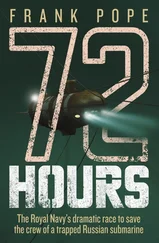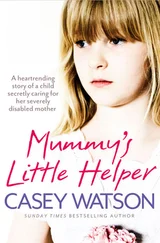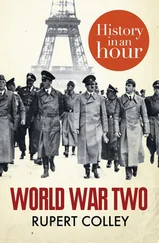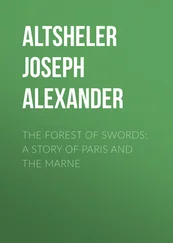We Were YOUNG and AT WAR
The first-hand story of young lives lived and lost in World War II
Sarah Wallis & Svetlana Palmer

To Miriam, Claude and Hilda
To Ben, Eleanor, Joel, Lukas, Sergei and Tristan
Cover Page
Title Page We Were YOUNG and AT WAR The first-hand story of young lives lived and lost in World War II Sarah Wallis & Svetlana Palmer
Dedication To Miriam, Claude and Hilda To Ben, Eleanor, Joel, Lukas, Sergei and Tristan
Preface Preface While the diary of Anne Frank remains the most famous child’s diary the world over, other young people’s accounts that survived the Second World War have been largely forgotten, or remain unknown outside their own countries. Yet, written in private, concealed from parental gaze or enemy capture, these faded notebooks and singed papers tell us so much of what it was like to grow up in that war. Intimate and often more direct than those of adults, these diaries were a place to confide and to question, to preserve one’s dignity, or maintain independence of spirit and thought. The diaries and correspondence that follow have been chosen for the uniqueness of the personal narrative and the quality of the writing. Though we initially set out to find diaries that followed the authors through adolescence to the end of the war, we soon realized that, unlike fiction, real diaries couldn’t always be made to fit. While some span the entire conflict, others start later, or contain large gaps; a few end abruptly, all too often a measure of the author’s short life. Parts of some diaries are missing; it is a miracle some have survived at all. Where we have included letters, many are telling by their omissions, as well as the writer’s tone. Though ordered chronologically, this book does not set out to be a history of the war. Instead, it is driven by the stories of the contributors, framed by historical events and interwoven to bring out the often unexpected parallels and collisions of thoughts, ideas and emotions of those caught up in historic events, sometimes on opposite sides of the conflict, or thousands of miles apart. None of the diarists can be said to be representative of their nation: some succumbed to the ideas they were fed by adults around them or by the state, others confound our expectations; many of them perhaps shed light on why it is that wars are fought by the young. After years of gathering, translating and researching these stories, we feel very close to our diarists. This is due not only to the length of time we have spent with them but also to the nature of their testimonies, so candid and so often courageous; they tackle the unpalatable, and reveal so much of themselves. Svetlana Palmer and Sarah Wallis, London, 2009
Part One Part One
Chapter One: The German Invasion of Poland September-October 1939
Chapter Two: The German Invasion of Western Europe April-September 1940
Chapter Three: Under German Occupation January-June 1941
Chapter Four: The Invasion of Russia June 1941-January 1942
Chapter Five: The War Goes Global September 1941-July 1942
Chapter Six: The Holocaust May 1942-March 1943
Part Two
Chapter Seven: After Stalingrad May-September 1943
Chapter Eight: Inside Germany September 1943
Chapter Nine: Waiting for Liberation April-August 1944
Chapter Ten: Inside Japan October 1943-December 1944
Chapter Eleven: Germany in Retreat September 1944-April 1945
Chapter Twelve: The Final Months of the War March-September 1945
Epilogue
Acknowledgements
Bibliography
Copyright
About the Publisher
While the diary of Anne Frank remains the most famous child’s diary the world over, other young people’s accounts that survived the Second World War have been largely forgotten, or remain unknown outside their own countries. Yet, written in private, concealed from parental gaze or enemy capture, these faded notebooks and singed papers tell us so much of what it was like to grow up in that war. Intimate and often more direct than those of adults, these diaries were a place to confide and to question, to preserve one’s dignity, or maintain independence of spirit and thought.
The diaries and correspondence that follow have been chosen for the uniqueness of the personal narrative and the quality of the writing. Though we initially set out to find diaries that followed the authors through adolescence to the end of the war, we soon realized that, unlike fiction, real diaries couldn’t always be made to fit. While some span the entire conflict, others start later, or contain large gaps; a few end abruptly, all too often a measure of the author’s short life. Parts of some diaries are missing; it is a miracle some have survived at all. Where we have included letters, many are telling by their omissions, as well as the writer’s tone.
Though ordered chronologically, this book does not set out to be a history of the war. Instead, it is driven by the stories of the contributors, framed by historical events and interwoven to bring out the often unexpected parallels and collisions of thoughts, ideas and emotions of those caught up in historic events, sometimes on opposite sides of the conflict, or thousands of miles apart. None of the diarists can be said to be representative of their nation: some succumbed to the ideas they were fed by adults around them or by the state, others confound our expectations; many of them perhaps shed light on why it is that wars are fought by the young.
After years of gathering, translating and researching these stories, we feel very close to our diarists. This is due not only to the length of time we have spent with them but also to the nature of their testimonies, so candid and so often courageous; they tackle the unpalatable, and reveal so much of themselves.
Svetlana Palmer and Sarah Wallis, London, 2009
Part One
CHAPTER ONE The German Invasion of Poland September-October 1939
‘We’ll see what will happen to me…’
Throughout the summer of 1939 governments across Europe hoped war could be prevented, or at least delayed. Though France and Britain did not respond when Hitler annexed Austria in March 1938 and Czech Sudetenland in September, they drew a line at Hitler’s claims on Poland. Hoping their alliance would serve as a deterrent, the two countries promised to come to Poland’s aid if Germany invaded. Their calculation was proved wrong. At 4:45 a.m. on 1 September 1939, 1.5 million German soldiers and 2,700 tanks began to cross Polish borders.
Having regained its independence at the end of the First World War, Poland was a lasting symbol of Germany’s humiliating defeat and territorial losses incurred as a result of the 1919 Versailles Peace Treaty. For nearly twenty years Poland had been home to 700,000 ethnic Germans, but animosity was rife, intensified when thousands of Germans were forcibly moved inland in the run up to the war, lest they assist the invader. Now Hitler urged his commanders to liberate their fellow ‘Aryans’ and send ‘every man, woman and child of Polish descent and language to their deaths, without pity or remorse’. Once conquered, Poland would be depopulated and resettled with the ‘pure Aryan master race’.
A country made up of many ethnic minorities, Poland was also home to 3 million Jews, the largest Jewish community in Europe. On receiving news of the German invasion, thousands fled their homes, aware of Hitler’s threats to ‘annihilate the Jewish race in Europe’. While his neighbours fled, fifteen-year-old Polish Jewish teenager Dawid Sierakowiak and his family decided to stay put in their home town of Łódź in central Poland. With no savings to pay for any means of escape, and unsure which way to go, they decided to face their fate in the city.
Читать дальше
